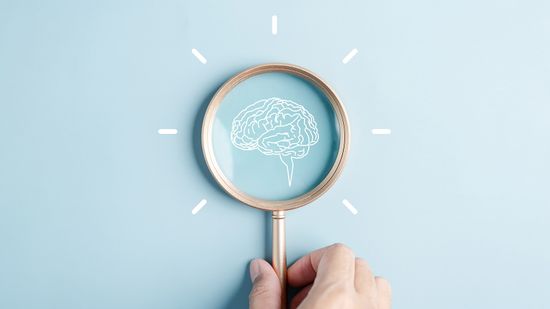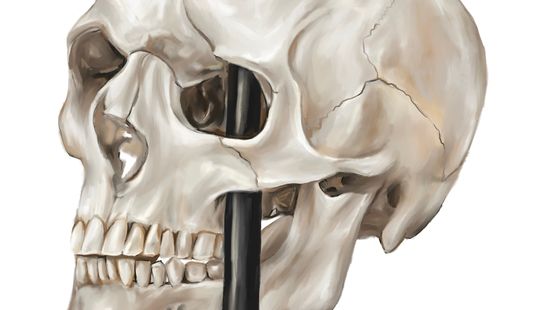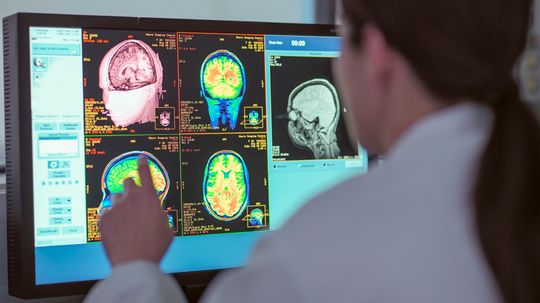Inside the Mind
What are dreams really made of? Are humans the smartest animal? What causes schizophrenia? Travel inside the mind and find out how the human brain works.

Is He Faithful? How to Identify Signs of Cheating in a Relationship

Why the Little Albert Experiment Could Never Happen Today

Milgram Shock Experiment: A Vital Lesson in Social Psychology

9 Types of Intelligence: The Many Ways to Expand Your Mind

Phineas Gage and the Birth of Modern Neuroscience

Call of the Void: A Counterintuitive Form of Self-preservation
Learn More / Page 4
People with face blindness" can see facial features just fine; if they were looking at a face they could describe to you what it looks like. But they cannot retain a memory of it. In severe cases people don't even recognize their own face when they look in the mirror. Learn what face blindness is all about.
By Julia Layton
Medical examiners are attributing an increasing number of deaths while in police custody to a syndrome called excited delirium. The problem is, there's no proof this syndrome exists.
By Julia Layton
Human beings have always found ways to ward off the effects of sleep deprivation. The newest wake-up pill has all of the benefits of caffeine and amphetamines with none of the down sides.
By Julia Layton
Advertisement
Scientific studies are showing that lefties are quicker and more adroit in some activities than their right-handed counterparts. How true is this idea?
By Julia Layton
The trials of being a lefty are numerous. You jostle for elbow room at the table, use scissors that feel funny in the hand and are teased for writing oddly. But do beleaguered lefties get the last laugh in sports?
By Robert Lamb
It's commonly believed that that grandpa has more knowledge than his young whippersnapper of a grandkid. But do wrinkles on the face really relate to wrinkles on the brain?
Think about how you would describe yourself to a stranger. Would you emphasize your keen sense of humor or physical features you're fond of? Or would you spend more time on supposed "trouble spots"? Your answer largely depends on your mental picture.
Advertisement
TV shows, movies and books depict characters that have suffered a bad injury to the head and have lost their memory. But could it really happen that fast? And will their memory ever return?
Ignorance is bliss. But what if you're more than just unaware? If you are dumb as a doornail, flat-out foolish or dim-witted, are you happier than the genius next door?
Laughter may be the best medicine, but can it actually cure an illness? Some doctors are prescribing a daily case of the giggles along with conventional treatments.
The Declaration of Independence is one of the most significant documents in American history. However, the origin of one of its signature phrases -- the pursuit of happiness -- is shrouded in mystery.
By Josh Clark
Advertisement
Marriage entails waking up beside the one you love and sharing cozy, homemade dinners for two. But when the honeymoon haze clears, are married people happier than singles?
How does a laughter milkshake sound? What about a joy cocktail? Though the former may sound like part of a kid's meal and the latter like a happy hour order, they're both related to laughter yoga.
The authors of chain emails often tell you to smile more, with the added claim that it takes more muscles to frown. Ever questioned this piece of wisdom? We have an answer for you.
By Tom Scheve
Smiling isn't complicated: your mouth turns up, your cheeks lift and your eyes crinkle. You're happy and it shows. But can every smile -- even a fake one -- spread that cheerful feeling?
By Julia Layton
Advertisement
We love to play with and fuss over our pets, but have you wondered if they were having as much fun as you were? Can animals actually feel happiness?
By Josh Clark
What are your happiest childhood memories? What do you remember most about them -- the things you bought or the gifts you received, or the events themselves?
By Josh Clark
From giggles to guffaws and chuckles to cackles, humans laugh in a lot of different ways. But what do each of those laughs mean, and are they all related to humor?
From an adult's point of view, kids have it made, spending their days playing and goofing off, with no responsibilities to worry about. But are kids really jumping for joy more often than the rest of us?
By Tom Scheve
Advertisement
Normally, we laugh because something's funny, but sometimes laughter can be something more serious -- a medical symptom. What separates a hearty guffaw from a signal of poor health?
It doesn't exactly seem like something the human body would do, let a large portion of itself go to complete waste. Is it true that most of your brain is on permanent hiatus?
Three weeks of hard work. Is that all it takes to kick your smoking habit, taste for junk food or serial inability to stop hitting the snooze button? Sounds almost too good to be true, doesn't it?
By Julia Layton
Happiness is a wonderful thing. Unfortunately, it can also be elusive due to stress or depression. However, strategies abound that you can use to trick yourself into being happy. Ready for 10 of them?
Advertisement
We need food for sustenance and nutrition, but we also eat for pleasure. We like the way some things taste, and enjoy the experience of eating, but can food actually make us happy?
By Josh Clark
Clowns might seem to have more foes than friends, but these entertainers are a key part of laughter therapy in hospitals. There is increasing evidence that a few hearty chuckles can help you along the road to recovery.
























